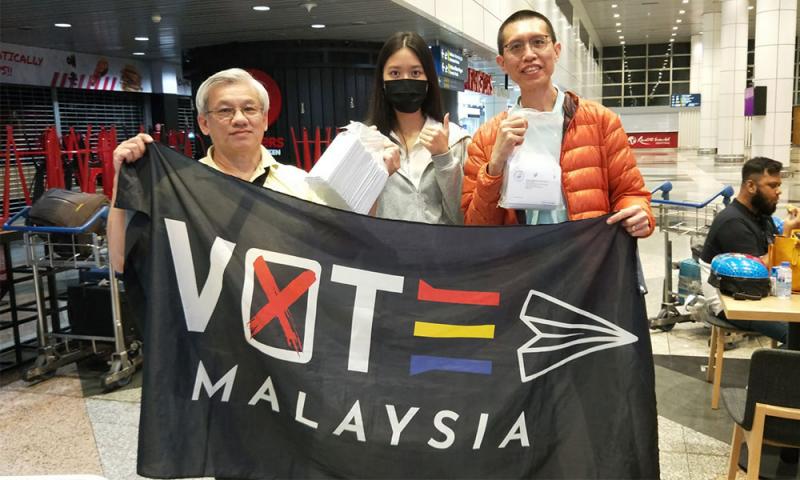‘Gotong-royong’ delivers record overseas ballot
In the ‘beginning’, if you are living abroad and wanted to vote in Malaysia, you would have to fly back home. If you were in Singapore, or southern Thailand, you could just hit the road. That was more than 10 years ago.
Now, people living abroad can make an online visit to Malaysia’s Election Commission, or Suruhanjaya Pilihan Raya Malaysia (SPR), to participate as a voter.
While internet friendliness represents a genuine change at SPR, voters’ serial numbers had to be handwritten on the ballot envelopes distributed worldwide two weeks ago by private courier contractors. It’s a cumbersome system, given to human error, but it’s cheaper than a bus ride from Golok to Kuala Lumpur, and a return ticket from Toronto, Canada. You can do it all on a computer, and His Majesty’s government pays a courier company to come to your door.
It wasn’t always like this, and while ‘SPR 2.0’ is far from first-rate, Malaysian voters as well as NGOs at home and abroad have already brought historic change. Consider that, up to GE13, the law restricted the overseas ballot to a select group of citizens living abroad, and these were, by far, students holding Malaysian government scholarships, military personnel, government servants (we never did call them ‘public servants’, did we?) and their spouses.
Slightly more than 10 years ago, a group of Malaysians in the United Kingdom with no government links took SPR to court to tear down that particular wall of segregation. They lived far from Malaysia, and they wanted to vote.
The plaintiffs fought in the name of all Malaysians abroad who were eligible to vote, and their right to be part of the overseas ballot. The legal argument was clear-cut: SPR was discriminating against a huge and growing swathe of Malaysians overseas. Before a decision could be handed down, SPR conceded that it must and would change its policy. The private citizens’ victory was nevertheless too late to be embodied in SPR’s rollout for GE13.
In that court case, a homegrown Bersih and MOV (My Overseas Vote) should also be credited with fanning a flame into the fire of change, providing legal support and guidance to the plaintiffs.
A forecast record-setting overseas ballot for GE15 didn’t just happen.
Global Bersih, Vote Malaysia (VM), Undi18, the Global Malaysia Network (GMN), Amsa (the Australian, Malaysian, Singaporean Association) and other NGOs have together pulled it off with vision, determination, a willingness to work together and too many volunteer-hours to count.
Across Australia, the digital footprints of the Malaysian Students’ Council of Australia (Masca) are virtually everywhere. The council has been working with NGOs like Undi18 and Global Bersih to build the diaspora vote.
Masca used a map of the world to create a ‘live’ infographic that listed every city and collection point that had been registered with the student council. It developed digital posters of individual collection points, with dates and times, which were then posted on community pages online. New posters were produced within five minutes for desperate city coordinators and collection agents.
Ei Lyn, 24, is Masca’s advocacy director. Jon Lee, of Malaysian Student Global Alliances, helped her to envision a different Malaysia, with elections at the centre.
“I was an international student in Adelaide in 2017 feeling homesick,” Ei Lyn says. “Masca gave me a lot of comfort, and I was very grateful. This is giving...
RM12.50 / month
- Unlimited access to award-winning journalism
- Comment and share your opinions on all our articles
- Gift interesting stories to your friends
- Tax deductable

 William de Cruz
William de Cruz